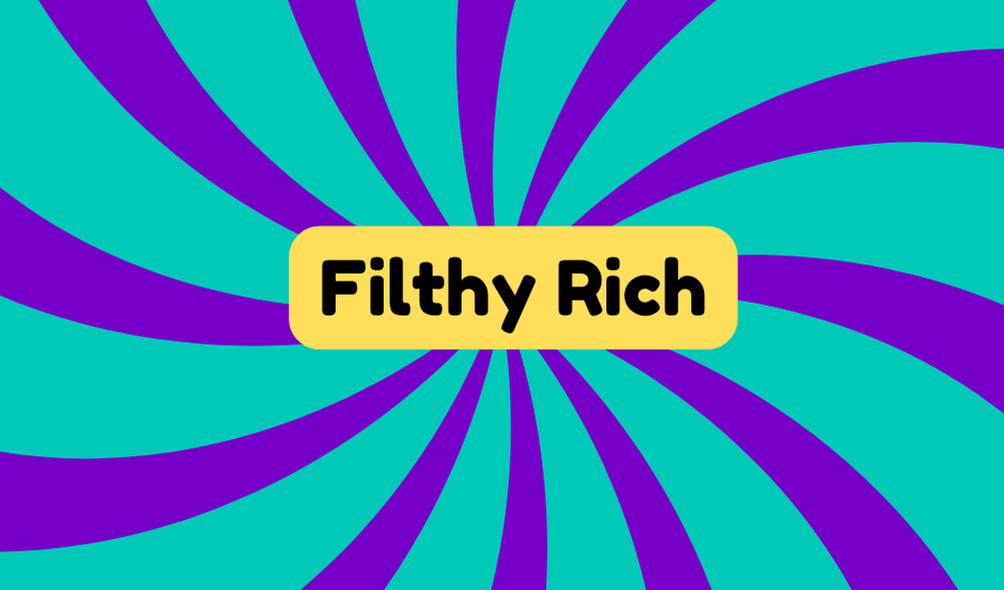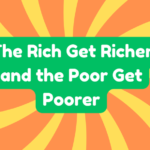The term "filthy rich" refers to those with extreme wealth, often provoking discussions about the morals behind their success. It originated from "foul lucre" in the 1400s and became popular in the 1930s as a critique of wealth disparity. This phrase highlights the societal gaps between the rich and average individuals, questioning the ethics of wealthy lifestyles and practices. For example, when you see billionaires flaunting their fortunes while many struggle, it raises eyebrows. Today, it serves as a cultural reflection, prompting thoughts on economic inequality and privilege. If you want to explore this topic further, there's more to uncover.
Synonyms
When discussing the term "filthy rich," several synonyms effectively capture the essence of extreme wealth. These terms often reflect the nuances of wealth disparities and financial ethics, allowing for a critical view of affluence. Here are three remarkable synonyms you might consider:
- Opulent: Conveys luxury and abundance, but may downplay the sources of that wealth.
- Affluent: Implies a level of wealth that can highlight social issues and contrasts in lifestyle.
- Wealthy: A broader term that lacks the moral connotations but encompasses significant financial power.
These alternatives not only describe affluence but also prompt discussions on the ethical dimensions of wealth. As you navigate these terms, keep in mind how they influence perceptions of money and societal responsibility.
Example of Sentences
The term "filthy rich" often pops up in conversations about wealth, highlighting the stark contrasts in society. It represents an extravagant lifestyle, often acquired through questionable means. Here are three examples to illustrate its use:
- The billionaire's filthy rich lifestyle leaves many wondering about the impact of wealth inequality.
- With filthy rich individuals flaunting their opulence, the gap between them and everyday workers widens considerably.
- Questions about ethics arise when filthy rich business tycoons profit while others struggle to make ends meet.
These sentences underscore how "filthy rich" not only denotes extreme wealth but also comments on societal issues. Emphasizing the disparity, it sparks conversations about fairness and the current state of wealth distribution.
Origin
"Filthy rich" has an intriguing history that reflects its complex meaning. You might find it interesting that this phrase traces back to the 1920s in the U.S., linked to "filthy lucre," which suggests earning money dishonorably. It emerged during a time of significant wealth disparities, often serving as a vehicle for social critiques about greed and inequality.
| Year | Phrase Origin |
|---|---|
| 1400s | Foul lucre |
| 1929 | First printed use |
| 1930s | Popularization |
| 2000s | Mainstream usage |
| Today | Symbol of excess wealth |
As you explore its development, you'll notice how it highlights social imbalances and invites a critical view of wealth in society.
Collocations
Collocations associated with "filthy rich" reveal how language reflects attitudes towards wealth. They often highlight the contrast between affluence and struggle, emphasizing societal views on wealth disparity. Here are three common collocations you might encounter:
- Live an affluent lifestyle – Suggests a luxurious existence enjoyed by the extremely wealthy.
- Create wealth disparity – Indicates how excessive wealth can contribute to societal gaps and tensions.
- Filthy rich benefactors – Implies that some individuals, despite their wealth, may not use their riches for altruism.
These phrases encapsulate a mixture of admiration and critique, showcasing the complex relationship society has with those who possess extreme wealth. By understanding these collocations, you gain insight into the pervasive narratives surrounding riches and social justice.
How to Use in Everyday Language
When discussing wealth in casual conversation, phrases like "filthy rich" can add color and depth to your speech. Using this term allows you to explore wealth perception and highlight social inequalities in a relatable way. For instance, when talking about luxury items, you might say, "Only the filthy rich can afford these." Such expressions not only spice up your dialogue but also provoke thought about how wealth shapes our society. Remember, language is powerful; it reflects our views and influences others. Be mindful of the implications behind terms like "filthy rich." They can reveal underlying biases, encouraging a critical view on financial disparities. Engage in conversations that challenge norms, fostering awareness and understanding.
Why Is It Still Relevant Today?
In today's world, the phrase "filthy rich" continues to resonate because it encapsulates the stark inequalities that persist in society. Many people see wealth perception as a measure of success, but it often highlights deeper social inequality. By discussing this term, we can critically analyze our values and priorities.
| Aspect | Impact |
|---|---|
| Wealth Perception | Distorts the view of success |
| Social Inequality | Fuels division among communities |
| Cultural Reflection | Examines attitudes toward wealth |
| Economic Disparities | Raises awareness of privilege |
Thus, understanding why "filthy rich" remains relevant can inspire important conversations about fairness and responsibility in today's economy. Your perspective matters in driving change!







